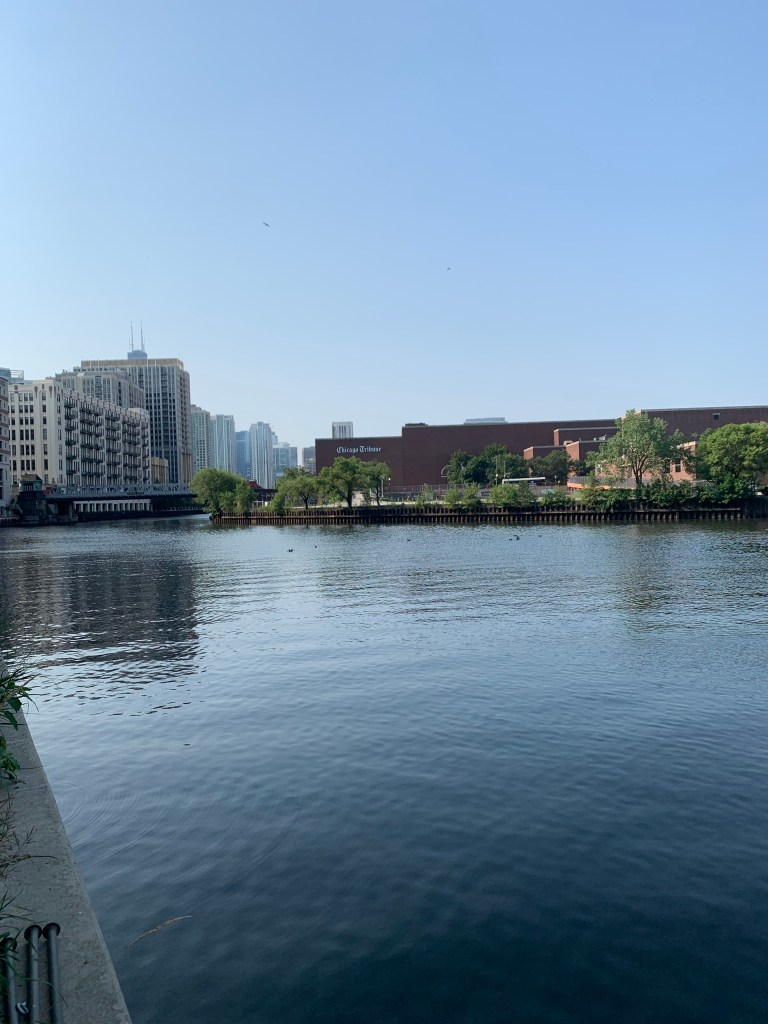
My daughter is 18 months old. She likes to read the same handful of books on repeat, including Little Blue Truck, Change Sings, and Wacky Wednesday. Her knees are scrapped and bruised, and I often find rocks in her diaper because she has spent the day in nature. The best sound in the world is her deep, stuttered laughter. When you can get her to laugh like that, you feel as if you have won the lottery.
Tonight, as we watched our daughter make silly faces and try to act out “Baby Shark”, I turned to my husband. We’ve had meals on foreign beaches, at top-ranked restaurants in one of the nation’s biggest food cities, and in the intimacy of our home. Still, we both can’t remember what we used to talk about when we dined. She is always the main attraction.
There is the before life, and the after. Before children, after children. I am pretty sure the before life existed, but I often have to remind myself those were my real experiences and not dreams.
It’s been over two years since I posted about our fertility journey, and about a year and half since I posted at all. In general, I don’t write as much, sometimes not at all, but also I had a hard time making sense of my emotions, thoughts, and feelings after I became a mother.
There was the intense newborn-period when the main goal is to survive. My only objectives each day were to feed the baby and make sure she slept, then feed myself, try to sleep, and maybe shower. It was exhausting and scary and overwhelming, but I kept going.
Then, I went back to work. I had used up all of my leave time (and still had to take a chuck of my 12-week maternity leave unpaid), so I couldn’t ease back into it. Pumping was an obstacle and a burden in my chaotic hospital schedule, and my supply took a hit. The pregnancy weight had not just melted away as I hoped, and 30 pounds seemed to linger. My mental health plummeted. I got in more fights with husband. My patience with my daughter was thin. I dreaded work each day. I didn’t know how I could be a mother, a counselor, and myself. There was only room for parenting and work, and the me I was before barely existed.
Those first four to five back months at work were probably the worst, in terms of postpartum recovery. However, things began to change. I found a good therapist and started back on psychotropic medications for the first time since college. My daughter’s schedule and sleep started to even out, so I could start relying on having me time daily. One day, after getting a total of an ounce in three pumping sessions, I gave up pumping and breastfeeding. My supply had whittled down to nearly nothing, and I finally let go of what I thought the expectations were for me. The next day, I wore a dress that zipped in the back and drank an extra cup of coffee; I was liberated.
And, I started running again. I worked a long weekend for an extra paycheck that paid for a treadmill, which allowed me to run before the baby was up or after she was asleep. I joined the local running group and vowed to make running friends. My body slowly settled back into its natural weight. Finally, I could see me again.
By February, I felt like I had achieved a balance between Mom Heather, Therapist Heather, and Heather Heather. I had gotten into a really good groove at work and was enjoying it more than I ever have. Our daughter was developing her personality, so we did more family activities. I was running more and more and starting to think about a fall marathon. The summer seemed bright. We were planning trips to and visits from family and friends. I wanted to spend the summer taking my daughter to the farmer’s market and the pool while also running every local race and meeting runners after for beers. Plus, by the summer, I would be finally a fully licensed therapist and that would open more doors for my career.
One day, I came home from work and didn’t feel good. I told my husband that not only could I not cook dinner, but I couldn’t be in the kitchen while he warmed something up for the baby. The next day at work I still felt nauseous. I didn’t think much of it, because I’ve had on-off nausea for years, especially before my period starts. My husband also had gotten a stomach bug later that week, so we thought maybe that was it. By the end of the week, I was better but still had my moments. I checked the calendar. My cycle should have started a few days before, but again, it wasn’t uncommon to be late.
Some coworkers and my husband joked that maybe I was pregnant. I insisted that I wasn’t. These are just symptoms I sometimes have before my period starts. Many, many times, I have felt nauseous, oversensitive to smells, and a bit sore, only to take a test that immediately came back negative and my cycle to start the next day. However, their slight teasing put a seed in my head, and I decided I would test on Friday just so I could shush that voice.
Because of all the time, resources, emotions, and energy that went into conceiving our daughter, we had not made any specific declarations about having a second child. We for sure knew that we would not be going through fertility treatments again, but we were also leaving the possibility open. It would happen if it was supposed to happen. There were times when I wanted my daughter to have a sibling, but I refused to put any hope into that idea because I couldn’t go through the emotional drain of trying again. However, there were times when we thought maybe we would stop at one child. Put all of our resources and energy into her. We could be happy with this one magnificent child.
Before going to bed, I set out the one pregnancy test I had with the objective of taking it first thing in the morning. It seemed silly, as I already knew it would be negative. Every other home test that I took before it was negative. I just couldn’t imagine a world in which I was pregnant.
I woke up needing to the use bathroom. I looked at the clock and it was 3:30 a.m. Well, now is as good of a time as any, I thought. I activated the test and put in on the sink. I turned my head for 15 seconds, but when I looked back, I saw the control line turning solid but also the test line. It faded from white to a very distinct pink line. I blinked and readjusted my eyes. Yes, there were two lines. My mouth dropped open and for several minutes and I kept glancing at the test and then at myself in the mirror, as if to say, “Can you believe this?”
In that moment, I was also trying to decide what to do with that information. Do I go back to bed and keep it to myself until morning, or do I wake up my husband? I chose the latter.
In grogginess, we both sat with the news for a minute and then decided to go back to sleep. Of course he did, and I did not. There was just too much to process.
The next day, we made two calls – one to my OB for an appointment to confirm the pregnancy and one to our daycare to get on the waiting list for a second child. We then called our parents. They were almost as surprised as us.
Having another baby meant changes. Our daughter was not yet 1, so we would have two kids under two. We needed a bigger car for two car seats and a 50-pound dog. We would also need to double up on diapers and daycare payments.
It also meant another personal re-shifting. There would not be trail races followed by pints this summer. Any big career moves I had thought about would likely wait because I need consistent pay and health insurance. The shorts I had worked so hard to fit back into would not be wearable in a few months. The two to three hours I had between when my daughter and I went to bed would be replaced with the uncertainties of an infant’s sleep schedule. Heather Heather would disappear again, and this time, with two children, it would be harder to find her.
Honestly, there were times that I didn’t want to have this baby, that I wasn’t willing to sacrifice the little bits of me that I was able to reclaim (not that I ever considered terminating the pregnancy). I wondered (and still do) how it is even possible that I could love another tiny human as much as I do my daughter. I worried about the strain on our finances and not being able to give our daughter all that I want to.
I watch our daughter play by herself and see a small yearn for a playmate. I think about them becoming close as adults and depending on each other to get through life. I imagine hold this newborn in my arms for the first time, and I can’t believe I get to do this again. Our daughter was our miracle through medical intervention. This baby, our miracle through divine intervention.
I am 37 weeks pregnant with a boy. He is measuring big, so big that he cracked one of my ribs as my organs made room for him. He is due October 31, but given how big he and I both are, he will be an early pumpkin. He is healthy. I am healthy. It’s almost as boring of a pregnancy with my first child, except the huge shock of him coming.
Yes, I am scared about having a second kid and losing myself, but I also know I am destined to be this child’s mother. He was meant to be here. For such a long time after my daughter was born, it felt like something was missing when the three of us would be together. As soon I as learned I was pregnant, I understood why. It was him. He was the last piece to our family.
Eventually, I will find myself again and we’ll have two kids that sleep through the night. We’ll go on family trips, and I will run again (maybe not a marathon). I’ve done many incredible things and have had great experiences, but now is my time to be a mother. I have wanted this role for so long, and now I get to do it with two gorgeous children. The before Heather, she’ll always be there because she is what led to the after Heather. Now, it’s her time.











